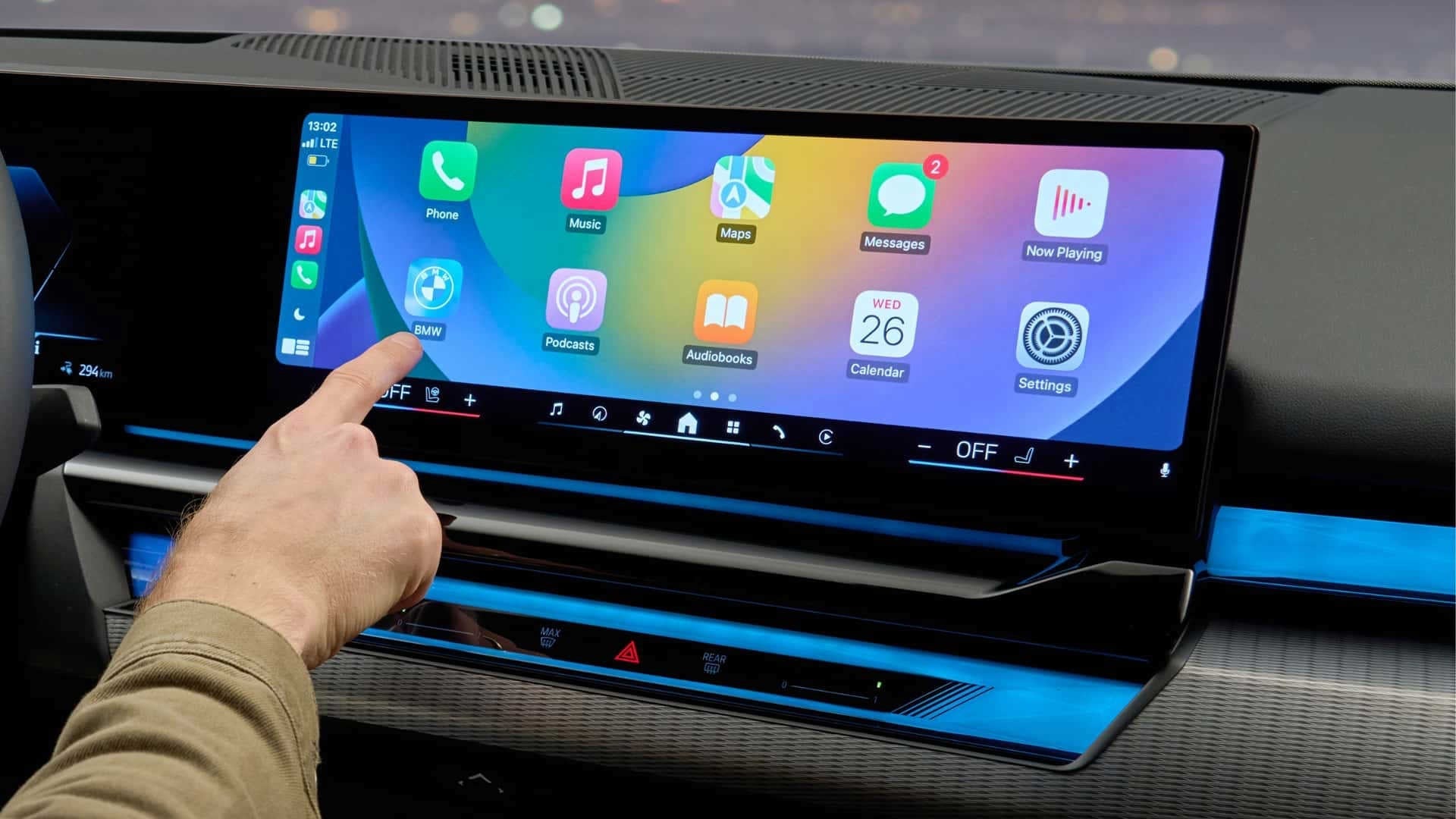For many drivers, Apple CarPlay has become a must-have feature. Surveys show that nearly 80% of new-car buyers in the U.S. would switch brands rather than lose CarPlay. Yet, BMW has recently stirred controversy by claiming that CarPlay isn’t as widely used as most people think.
At the heart of the debate is a bold statement from Stephan Durach, BMW’s VP of UI/UX Design, who says that data from more than 10 million BMW vehicles proves most drivers actually stick to BMW’s native infotainment system. So, is CarPlay truly overrated, or is BMW just trying to defend its own software ecosystem? Let’s dig in.
BMW’s Argument: Native Systems Still Dominate
BMW has long had a complicated relationship with Apple CarPlay. In the past, the automaker even experimented with charging a subscription fee for CarPlay access, sparking backlash. Now, their latest claim suggests that CarPlay adoption may not be as strong as the hype.
Durach points out that the majority of BMW owners use BMW’s built-in navigation and media apps instead of CarPlay. He argues that many drivers don’t want to deal with connecting their iPhones every time they get in the car, preferring the seamless experience of the native system.
This perspective also explains why BMW, despite offering CarPlay, is not embracing CarPlay Ultra, Apple’s next-generation dashboard experience that takes over every screen in the vehicle. The upcoming BMW iX3, for instance, will not support CarPlay Ultra.
Why CarPlay Still Matters
While BMW’s data may reflect trends among its customers, it’s hard to ignore the broader market picture. Research consistently shows that CarPlay (and Android Auto) are major selling points for new cars, especially among younger buyers who want seamless integration with their smartphones.
Key reasons why CarPlay remains popular:
-
Familiarity – The iPhone interface feels instantly recognizable.
-
Apps & Services – Spotify, Waze, WhatsApp, and more—apps drivers already use daily.
-
Consistency – Whether you’re in a rental, a friend’s car, or your own, CarPlay always looks and works the same.
In fact, Apple has reported that 80% of U.S. car buyers demand CarPlay, which contradicts BMW’s claim that usage is low.
What’s Really Behind BMW’s Stance?
BMW isn’t alone in hesitating over CarPlay Ultra. Many automakers fear that Apple is gaining too much control over the in-car experience. Car companies invest heavily in infotainment systems, and letting Apple take over key functions—like climate control or speedometer displays—could reduce the importance of the automaker’s own technology.
By downplaying CarPlay’s popularity, BMW may be trying to justify its decision to prioritize its own iDrive system and limit Apple’s influence in future models.
What This Means for Drivers
If you’re a BMW fan who also loves Apple CarPlay, this news could be frustrating. While standard CarPlay support will continue, the lack of CarPlay Ultra might push some buyers to consider brands like Hyundai, Kia, or Aston Martin, which are already on board with Apple’s upgraded system.
For those driving older BMWs—or any car without CarPlay—there’s still a solution. With an aftermarket CarPlay retrofit module, you can upgrade your car to enjoy the same convenience and features that newer models offer.
👉 Check out our BMW CarPlay modules at TheCarPlayer.com to see how you can bring CarPlay to your existing vehicle.
Final Takeaway
BMW may be downplaying CarPlay’s role, but the reality is that drivers increasingly demand smartphone integration. Whether automakers like it or not, CarPlay is here to stay—and with CarPlay Ultra rolling out to more affordable brands soon, its influence is only set to grow.
If you’re not ready to give up CarPlay, don’t worry. Even if your automaker is hesitant, you can always bring it to your car with a retrofit solution.


Share:
Android Auto and CarPlay Can’t Kill Off AM/FM Radio (Yet)
Brand-New iPhone 17 Plagued by CarPlay Disconnect Issues